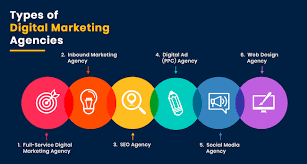Digital Marketing for Financial Services
In today’s digital age, financial services companies are increasingly turning to digital marketing strategies to reach and engage with their target audience. With the rise of online banking, mobile payment apps, and robo-advisors, the financial industry is undergoing a significant transformation in how it markets its products and services.
One of the key benefits of digital marketing for financial services is the ability to target specific demographics with precision. Through tools like social media advertising, search engine optimization (SEO), and email marketing, financial institutions can tailor their messaging to reach customers who are most likely to be interested in their offerings.
Another advantage of digital marketing is the ability to track and measure campaign performance in real-time. By analyzing metrics such as website traffic, conversion rates, and customer engagement, financial services companies can gain valuable insights into the effectiveness of their marketing efforts and make data-driven decisions to optimize their strategies.
Furthermore, digital marketing allows financial services firms to enhance customer experience by providing personalized and relevant content across multiple channels. By leveraging data analytics and automation tools, companies can deliver targeted messages that resonate with customers at every stage of their journey.
Overall, digital marketing offers a cost-effective and efficient way for financial services companies to promote their products and services, build brand awareness, and drive customer acquisition. By embracing digital strategies and staying ahead of industry trends, financial institutions can position themselves for success in an increasingly competitive market.
Top 5 FAQs on Digital Marketing Strategies for Financial Services
- 1. How can digital marketing help financial services companies reach their target audience?
- 2. What are the key benefits of using social media for digital marketing in the financial industry?
- 3. How can financial institutions measure the effectiveness of their digital marketing campaigns?
- 4. What role does content marketing play in promoting financial services online?
- 5. How can data analytics and automation tools enhance digital marketing efforts for financial services?
1. How can digital marketing help financial services companies reach their target audience?
Digital marketing plays a crucial role in helping financial services companies reach their target audience by providing precise targeting capabilities through tools like social media advertising, search engine optimization (SEO), and email marketing. By leveraging these digital channels, financial institutions can tailor their messaging to specific demographics most likely to be interested in their products and services. This targeted approach allows companies to engage with potential customers effectively, increase brand visibility, and drive customer acquisition by delivering personalized content that resonates with their audience’s needs and preferences.
2. What are the key benefits of using social media for digital marketing in the financial industry?
Utilizing social media for digital marketing in the financial industry offers several key benefits. Firstly, it provides a platform for financial institutions to engage with their audience in real-time, fostering meaningful interactions and building trust with customers. Additionally, social media allows for targeted advertising based on user demographics and interests, enabling financial services companies to reach their desired audience effectively. Moreover, social media platforms offer valuable insights through analytics tools, helping businesses track performance metrics and optimize their marketing strategies for better results. By leveraging the power of social media, financial firms can enhance brand visibility, drive customer engagement, and ultimately increase their market presence in a competitive digital landscape.
3. How can financial institutions measure the effectiveness of their digital marketing campaigns?
Financial institutions can measure the effectiveness of their digital marketing campaigns through various key performance indicators (KPIs) such as website traffic, conversion rates, customer engagement metrics, and return on investment (ROI). By analyzing these metrics, financial institutions can track the success of their campaigns, identify areas for improvement, and make data-driven decisions to optimize their marketing strategies. Additionally, tools like Google Analytics and other analytics platforms provide valuable insights into campaign performance, allowing financial institutions to assess the impact of their digital marketing efforts and adjust their tactics accordingly to achieve their business goals.
4. What role does content marketing play in promoting financial services online?
Content marketing plays a crucial role in promoting financial services online by providing valuable and relevant information to target audiences. Through informative blog posts, articles, whitepapers, videos, and infographics, financial institutions can establish themselves as trusted authorities in the industry. By creating high-quality content that addresses the needs and concerns of their target market, companies can attract and engage potential customers, build brand awareness, and drive organic traffic to their websites. Content marketing also helps to educate consumers about complex financial products and services, establish credibility, and nurture long-term relationships with clients. Overall, content marketing is an essential component of a successful digital marketing strategy for financial services companies looking to differentiate themselves in a competitive market.
5. How can data analytics and automation tools enhance digital marketing efforts for financial services?
Data analytics and automation tools play a crucial role in enhancing digital marketing efforts for financial services by providing valuable insights and streamlining processes. These tools allow financial institutions to analyze customer behavior, preferences, and trends in real-time, enabling them to create targeted and personalized marketing campaigns. By leveraging data analytics, companies can make informed decisions based on accurate data, optimize their strategies for better results, and measure the effectiveness of their campaigns. Automation tools further enhance efficiency by automating repetitive tasks such as sending personalized emails, managing social media posts, and tracking customer interactions. This not only saves time and resources but also ensures consistent messaging across all touchpoints, ultimately improving customer engagement and driving business growth.




